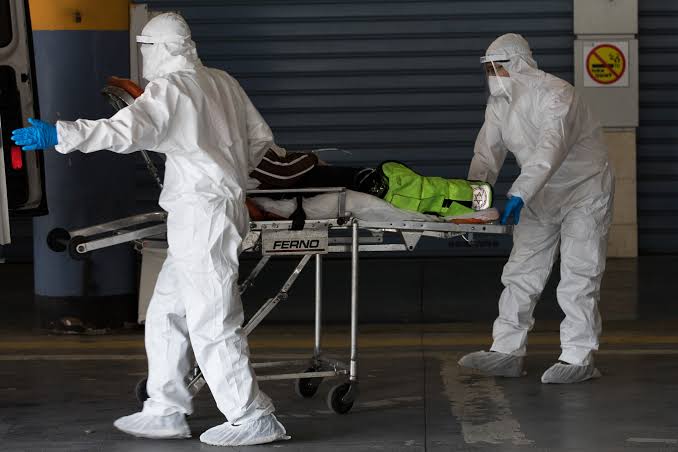Mr Bunmi Makinwa, former Regional Executive Director, United Nations Population Fund (UNFPA), has expressed fears over possible escalations of COVID-19 pandemic cases in Nigeria following the gradual easing of lockdown.
Makinwa, also Chief Executive Officer of AUNIQUEI Communication for Leadership, said in a statement on Tuesday in Lagos that expectations of a reduction in cases of the pandemic were bleak.
The former UNFPA official pointed out that the recent increase in cases happened mostly during the lockdown period.
He said given that the disease thrives best in the course of human social and daily interaction, more infections would be seen as the lockdown was reduced or totally lifted.
READ ALSO:NCDC Records 245 New Cases Of COVID-19, Total Infections Now 2802
“The point made is not an argument to continue lockdown, rather, it is about how to manage life with COVID-19 as a permanent, constant, invisible enemy,” he said.
Makinwa explained that if more organised countries with better record-keeping could not accurately account for COVID-19 deaths, as distinct from deaths caused by other diseases, it would be too much to expect Nigeria to do better.
According to him, many parts of Nigeria are already in the community transmission stage of the virus and it will become nationwide.
He said the number of COVID-19 positive people would increase and the very likely different expanding interplay of cause-and-effect could be seen as “a bulging concentric circle”.
Makinwa explained that the more people test positive, the more their contacts that have to be identified through contact tracing.
He said: “The more contact tracing done, the more it is effective, the more people will be available for testing and the more people will be found to be positive for COVID-19.
“The more people test positive, the more the numbers of people who will go into Isolation Centres.
“Self-quarantine requires special knowledge and competence by individuals and families.”
According to him, at the same time, many people will be asymptomatic; they are infected by the virus and they do not show symptoms, but they can, and do infect others.
“The ratio of asymptomatic people, according to studies across countries has been found to be as high as 40 to 50 per cent of all infections.
“Such people unknowingly constitute a silent growing source of infection. It is dangerous but real.
“Contact tracing is very difficult in the Nigerian context, given the difficulties of identification of people, poor access to several areas and reluctance to self-report.
“Cultural norms that encourage the protection of family members and political interference are additional problems.
“For these and other reasons, many infected people will not be found,” Makinwa said.
He said that in the light of these, more people would show up at hospitals with “regular” illnesses and some of them would turn out to be COVID-19 cases.
The ex-UNFPA chief explained that these patients would cause infections within the hospitals and amongst health providers.
Makinwa said the increased infections within hospitals and of care providers, coupled with the diversion of care, materials/equipment and attention to COVID-19 would put a strain on medical facilities in general.
He added that it would also weaken the provision of medical and healthcare for many chronic and serious ailments.
According to him, more patients with other diseases will die or have prolonged illnesses.
He said, in the order of things, the number of deaths would increase overall, which in turn would heighten the panic on COVID-19.
Makinwa said hospitals and clinics would become un-inviting for people who were slightly unwell as they would want to avoid perceived possible infection of COVID-19.
He said that their health would further deteriorate and their immunity would become fragile.
“Meanwhile, the Isolation Centres, following the major increased number of COVID-19 patients, will become overwhelmed; staff, equipment and materials will become inadequate.
“In the natural cycle of COVID-19, as infections grow, many infected people will, in turn, infect others.
“The possible heavy infections of healthcare providers will affect overall healthcare care provision for all kinds of diseases and bring down the quality of care that has been poor in general.
“The concentric circle of infections, poor level of care, deaths and more infections will continue to expand, as it has been demonstrated in Italy, Spain and U.S. It is bad news,” he said.
Makinwa said the situation in Nigeria would continue to get worse and the virus would remain a serious problem for a fairly long time in the country.



Leave a Reply